Boilermakers play role in legal challenge to halt EPA monstrosity
THE U.S. SUPREME Court's 5-4 decision February 9 to place a hold, or “stay,” on the implementation of EPA's costly and overreaching Clean Power Plan is a critical, if temporary, victory for the Boilermakers union, the United Mine Workers of America, the coal industry and the future of power generation in the United States. It is also an extraordinary legal precedent.
Through the CPP, the EPA seeks to radically reshape the energy industry by forcing states to adopt plans that in effect would shut down numerous coal-fired power plants and replace them with lower-emission fuel sources, especially natural gas and renewables. It is the latest example of the EPA's aggressive — and we believe illegal — interpretation of its limited authority to control carbon emissions in the energy sector. The Supreme Court already has acted to curb other excessive EPA greenhouse gas rules.
The Supreme Court got it right by staying this costly, overreaching and farcical rule. It is our hope that the courts permanently kill the Clean Power Plan before it causes further and irreparable damage to America's energy industry.
The Boilermakers union is part of a coalition of utilities, unions and other organizations that petitioned the top court to halt implementation of the CPP, pending action in the U.S. Court of Appeals for the District of Columbia Circuit. The D.C. Circuit is reviewing petitions by our coalition and others to rule on the legality of EPA's aggressive overreach.
Among other groups seeking to kill the rule is a coalition of 29 states and state agencies, and allied organizations. The U.S. Chamber of Commerce and dozens of utilities have filed petitions for review as well.
What makes the Supreme Court's decision unprecedented is that the high court has never before issued a stay of a regulation while a case was before an appeals court. The stay is therefore an indication that those opposing the plan have offered compelling legal arguments.
However, the eventual outcome is far from certain. In fact, the D.C. Circuit denied a previous stay request in January. That decision led to applicants seeking relief at the high court.
Groups challenge CPP on many fronts
THE FACT THAT so many organizations have challenged the CPP reflects the sweeping scope and the potentially devastating impact of the EPA's signature approach to deal with climate change. The rule would set emission limits for each state and allow states to develop their own plans using so-called “building blocks” identified by the agency. If a state fails to develop an approved plan, the EPA would implement one. The building blocks include such things as replacing coal-fired power units with natural gas and renewable alternatives and participating in regional carbon trading schemes.
The energy industry opposes the rule primarily because it would cause severe economic disruption to the existing electric energy structure and threaten grid reliability. Utilities have invested billions of dollars to build and upgrade plants, adding major environmental systems to reduce various kinds of emissions. Most of these plants have a decade or more of expected useful life remaining. Replacing these assets with entirely new energy sources would involve major new investments, which would ultimately be borne by customers.
Our union and others oppose the rule for the same reasons but mainly because it is a job killer for the building and construction trades as well as mine workers. Under the CPP, the EPA is coercing states to get rid of about half of the coal-fired power plants that currently exist. Obviously that would severely impact the work of our members and would further devastate the coal mining industry.
The 29 states and state agencies are objecting to the CPP primarily because it tramples on states rights, interfering with the authority of state governments and agencies to regulate energy production and distribution. To the states, the CPP represents a power grab by the EPA and the Obama administration. State regulators have described the rule “as the most far-reaching and burdensome rule EPA has ever forced onto the states.”
The states also question EPA's interpretation of the Clean Air Act, which forms the legal basis created by Congress to regulate emissions. Under the CPP, the agency seeks to go beyond regulating emissions at the source (at the power plants), instead expanding its reach “outside the fence.”
Beyond the legal arguments, however, there is the common sense objection to the CPP, that it — as well as the New Source Performance Standards rule targeting the construction of new coal-fired power plants — will do virtually nothing to slow global warming.
These and other objections have brought the energy industry, labor unions, state governments, utilities, the U.S. Chamber of Commerce and other organizations together in a common effort to block the EPA from implementing the CPP through a judicial determination that the rule oversteps the limits of EPA's authority to regulate greenhouse gases.
EPA plan is wrong-headed, Boilermakers urge CCUS investment
THE LEGAL OBJECTIONS to the CPP are, we believe, valid and compelling. Beyond the legal arguments, however, there is the common sense objection to the rule that it — as well as the New Source Performance Standards rule targeting the construction of new coal-fired power plants — will do virtually nothing to slow global warming.
Former Energy Department Assistant Secretary Charles McConnell stated that the Clean Power Plan will, at best, reduce global temperature by a mere one one-hundredth of a degree Celsius.
The American Coalition for Clean Coal Electricity, using EPA's own analysis for the CPP, estimates that the EPA's rule would, by 2050, result in lowering the projected seal level rise by the thickness of three sheets of paper and reducing global average temperatures by a mere 0.016 degree Fahrenheit.
And for that miniscule impact, the EPA is willing to disrupt the nation's electric power industry, destroy many thousands of good blue-collar jobs and push the nation toward more expensive and less reliable energy generation.
The Boilermakers' position is that rather than seeking to regulate the fossil fuel industry out of existence, the federal government should expand its role in supporting technologies for carbon capture, use and storage (CCUS).
These technologies offer the best hope for reducing CO2 emissions not only in the United States but also around the world. Despite billions of dollars in subsidies for renewables, in 2014 wind power generated only 4.4 percent of U.S. electricity, solar power just .4 percent (source: U.S. Energy Information Administration). At a minimum, the federal government should subsidize CCUS at the same level it subsidizes renewables.
Appeals court will take next step
WINNING THE STAY is indeed an important step for the coalition in which we are involved as well as for the other entities opposing the CPP. But while we have prevailed with the stay request, the rule's future remains uncertain, as the broader issue of whether the CPP is unlawful and exceeds EPA's authority currently rests with the D.C. Circuit.
This court is expected to hear oral arguments on the CPP in June, with a decision likely to come in September or October. There are several scenarios that could develop once that decision is reached, depending on the D.C. Circuit's ruling and the status of the Supreme Court (whether the vacancy due to Justice Antonin Scalia's death has been filled).
The Supreme Court is currently divided on the issue at 4-4. According to Gene Trisko, our legal counsel in this petition, if this situation remains, the decision of the D.C. Circuit likely would become final, because an equally divided Supreme Court cannot reverse a lower court's decision. We would need to persuade one of the Court's liberal justices of the merits of our case in order to prevail in a 5-3 decision.
Senate Majority Leader Mitch McConnell has vowed to block consideration of any Obama nominee to the Supreme Court. It's possible that McConnell could relent, but for now there is uncertainty in how the process will unfold.
We believe the merits of our petition and those of others opposing the CPP are strong. It is our hope that the D.C. Circuit at least remands it to the EPA to be rewritten.
The CPP is a bad rule on numerous levels: the unlawful trampling of states' rights, the misreading of EPA's authority under the Clean Air Act, the targeting of an entire industry instead of specific emission sources, and other issues.
The Supreme Court got it right by staying this costly, overreaching and farcical rule. It is our hope that the courts permanently kill the Clean Power Plan before it causes further and irreparable damage to America's energy industry.












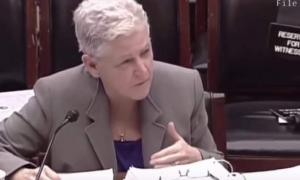
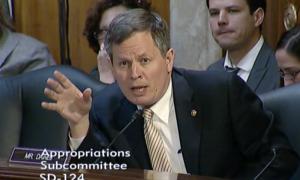


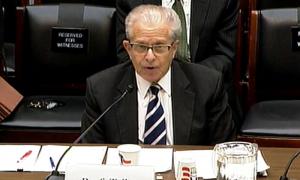
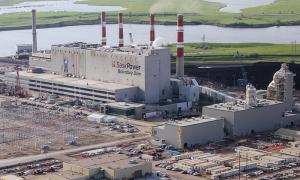
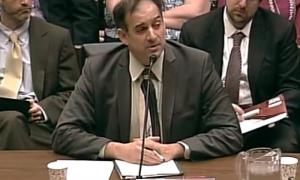
0 Comments